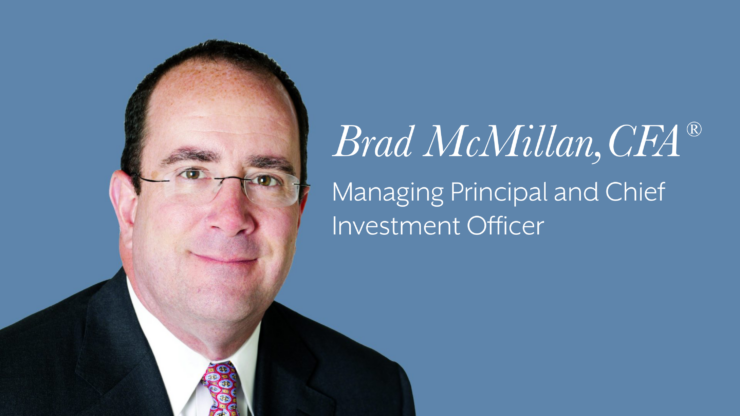What Does Financial Planning Really Mean?
February 27, 2019
There are many terms used to describe the services of a financial advisor. Some of these include wealth management, financial planning, and investment management.
There are many terms used to describe the services of a financial advisor. Some of these include wealth management, financial planning, and investment management. These nebulous, and often incorrectly used terms can certainly be confusing to the investment public. To clear this up, let’s start with the definition of financial planning.
The Certified Financial Planner® Board defines financial planning as “the process of determining whether and how an individual can meet life goals through the proper management of financial resources. Financial planning integrates the financial planning process with the financial planning subject areas.”
There are six steps to the financial planning process:
- Establishing and defining the client-planner relationship
- Gathering client data including goals
- Analyzing and evaluating the client’s current financial status
- Developing and presenting recommendations and/or alternatives
- Implementing the recommendations
- Monitoring the recommendations
“Financial planning subject areas” denotes the basic subject fields covered in the financial planning process which typically include, but are not limited to:
Financial statement preparation and analysis (including cash flow analysis/planning and budgeting)
EMERGENCY PLANNING: In life you should expect the unexpected, and this is why working on an emergency plan is paramount as the last thing you want to do is be forced to rely on credit cards or a loan which could simply compound the problem.
CASH FLOW & DEBT MANAGEMENT: Cash flow is the cornerstone of any financial plan. Without a clear picture of what money is flowing in and out each month, it is impossible to make informed decisions with respect to the other financial planning issues that affect you. In addition to your cash flow, your debt level and credit history are also important barometers of financial health.
Insurance planning and risk management
RISK MANAGEMENT: It is human nature that we strive to protect each other and our family from risks including death, disability, serious medical problems, long-term care expenses, liability, and property loss or damage. Risk management planning involves identifying the major risks inherent in your financial picture, and reducing the effect of a risk event if it does occur.
Investment planning
We cannot control what the market does, but what we can attempt to control is the amount of risk you are taking and try to find the right mix of assets. The mix of assets is important because some investments rise when others are going down. By mixing them together, we can keep returns more steady. This does work most of the time, but there are always periods where investments simply don’t follow the “rules,” so it is important to monitor your financial situation on a regular basis.
EDUCATIONAL PLANNING: During the past 30 years, costs at both private and public institutions have increased at a rate far outpacing general inflation. The approximate total cost of tuition and fees, room and board, and miscellaneous expenses for most students will be more than $100,000 at the average private college or university and at least $50,000 at a corresponding public institution. Given these figures, parents must develop a savings program to accumulate the funds necessary to meet these expenses.
Income tax planning
Tax planning and financial planning are closely linked, because taxes are such a large expense item as you go through life. By employing effective tax planning strategies, you can have more money to save and invest, or more money to spend – or both.
Retirement planning
Retirement now represents, for many people, a stage of their lives nearly as long as their working lives. With the current environment of economic uncertainty and the questionable ability of the Social Security system to provide adequate retirement income, it cannot be overstated enough that families launch and sustain a personal retirement savings program to build the funds necessary to retire comfortably.
Estate planning
Estate planning is the process of planning for the accumulation, conservation, and distribution of an estate to effectively and efficiently accomplish both tax and nontax objectives. This planning consists of addressing the financial security of your family at times of crisis including incapacity, serious medical situations, travel problems, and death. It also addresses probate, asset transfers, gifts, estate taxes, settlement costs, and other personal end-of-life decisions.
If the world stayed the same, you could create a financial plan and follow it faithfully and you would achieve your goals. One of the significant parts of our job is to stay abreast of the economic, political, and regulatory changes that impact our clients. In addition to the world changing, people’s lives and spending patterns change too. A single financial plan is helpful, but the real value a financial advisor brings to their clients is the ability to help them navigate the future.
While investment advice and management, without a financial plan, is appropriate in some cases, most clients that have clear goals would benefit from financial planning. After completing the financial planning process described above, and understanding a client’s goals and resources holistically, investment guidance can be more structured.
As you can see, financial planning encompasses much more than just managing client assets.
If you have been considering seeking professional advice, but were confused on what true comprehensive financial planning really is, we hope this blog post provided you the clarity you were looking for to take the next exciting steps in optimizing your financial affairs.
Let the Certified Financial Planner® professionals at Williams Asset Management help with your wealth management needs. Whether you need comprehensive and holistic financial planning or investment management, we can help! We are fee-based, independent financial advisors located in Columbia, the heart of Howard County, Maryland. Schedule your complimentary consultation today by calling (410) 740-0220!


